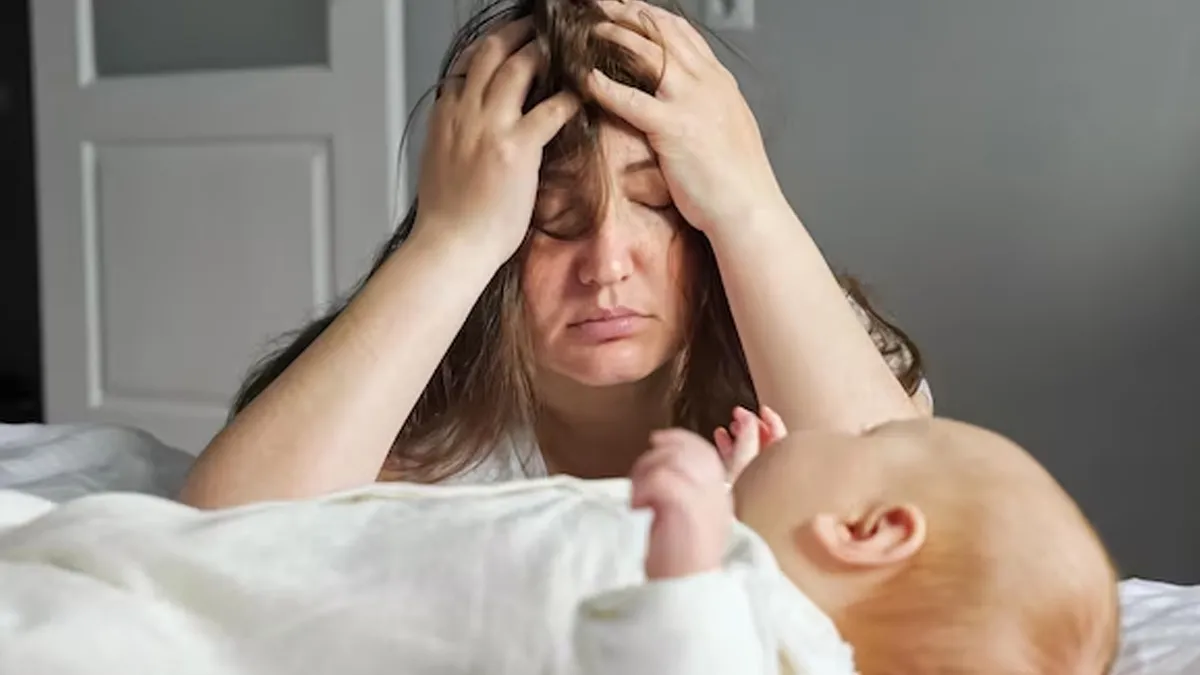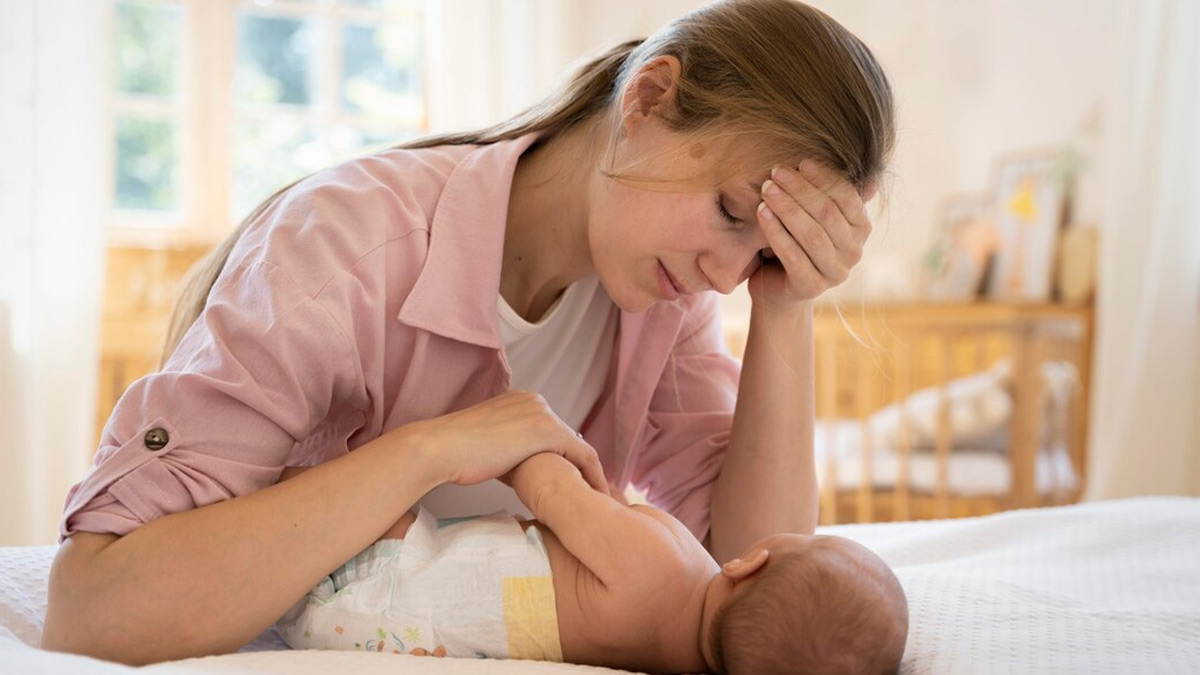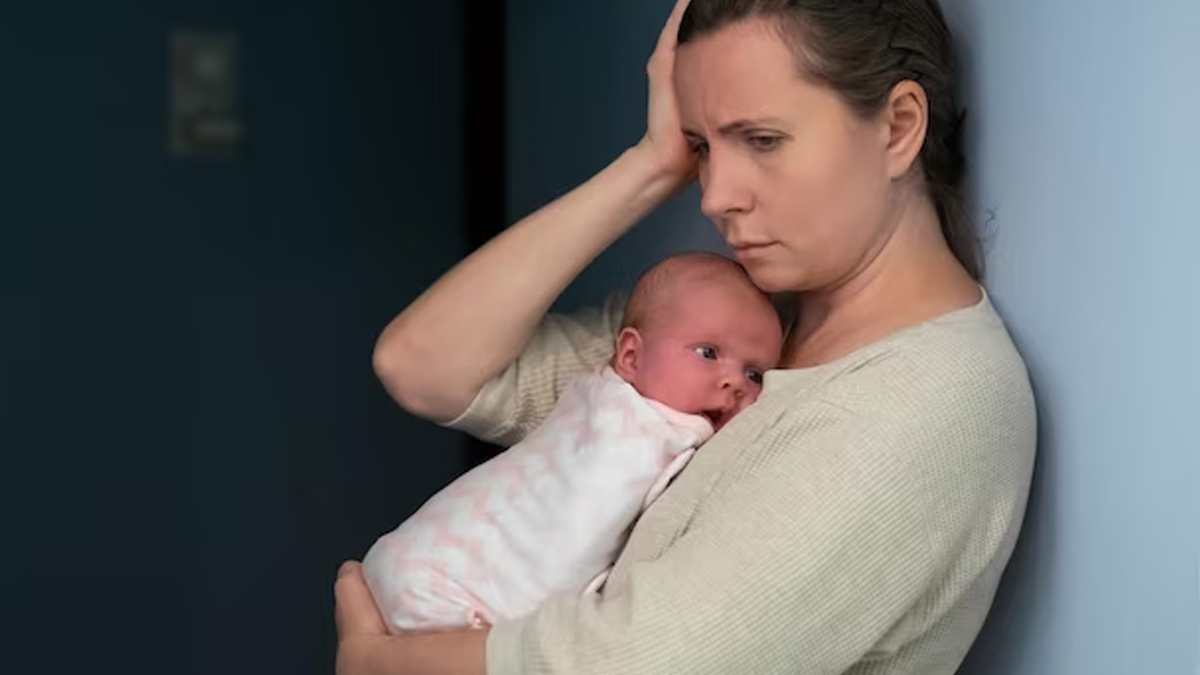
A shocking incident in Karula locality has highlighted the lesser-talked-about mental health problems of new mothers. A 15-day-old infant was rescued in time when his mother, who was said to be battling acute mental illness, put him in a fridge.
Table of Content:-
As reported, the infant was rescued after his grandmother overheard faint cries and found him within the refrigerator. The infant was taken to a local hospital, where his condition was reported as stable by doctors and he was no longer in danger.
The mother was interrogated by family members when they asked her, and she confessed that she had placed the infant in the refrigerator because he cried non-stop and wouldn't let her sleep.
Family First Thought It Was Supernatural
At first, the relatives of the woman believed she was possessed by an evil spirit. They consulted an exorcist, but her condition did not improve. Only when she was taken to see a psychiatrist was the actual cause determined.
Doctors Diagnose Postpartum Psychosis
Psychiatrists diagnosed the woman with Postpartum Psychosis (PPP), a rare but severe mental illness that can develop shortly after giving birth. In contrast to postpartum depression, a more common condition affecting many women to some degree, postpartum psychosis is an urgent illness whose symptoms develop suddenly and are extremely severe.

Also Read: Sudden Shortness Of Breath: Asthma Attack Or Something More Serious?
Symptoms of Postpartum Psychosis
The physician managing her clarified that patients with PPP can have:
- Hallucinations (hearing or perceiving things that are not there)
- Delusions (crazy beliefs or suspicions)
- Extreme confusion and disorientation
- Agitation and restlessness
- Sleeplessness
- Risk of harming oneself or the baby
In this example, the mother's failure to manage her baby's crying spiraled into dangerous conduct because she had not received treatment for her condition.
What Is Postpartum Psychosis?
Postpartum psychosis has been estimated to occur in 1 to 2 women among every 1,000 births. Symptoms are most likely to start in the first two weeks following childbirth but can also appear later. The specific cause is not known, but professionals think hormonal fluctuation, lack of sleep, and a history of psychiatric illness may be contributing factors.
Unlike baby blues or even postpartum depression, PPP is more serious and calls for immediate medical attention.

Treatment and Recovery of Postpartum Psychosis
The good news is that, with proper treatment, most women recover fully. Treatment plans can include:
- Hospitalisation to guarantee mother and baby's safety
- Medication, like antipsychotics and mood stabilisers, on psychiatric supervision
- Therapy and counseling, which enable mothers to sort out their experiences and stabilise emotionally
- Support systems, in which families are taught to identify early warning signs and promote medical treatment rather than help through superstition or stigma
The woman in question is currently undergoing psychiatric treatment and her condition is closely monitored. Physicians emphasise the need for creating awareness regarding postpartum mental illness. The families need to be cautious of sudden alteration in the behaviour of a new mother, particularly confusion, hallucinations, or violent behaviour.
The experts also point out that cultural misconceptions and beliefs tend to hold up medical treatment. As evident from this case, early psychiatric intervention can save the mother and child from life-threatening hazards.
Bottomline
This harrowing case serves as a reminder that labour has an impact on not only a mother's body but also her mental state. Postpartum psychosis, although it is extremely rare, is a medical emergency. Early recognition of the signs and immediate treatment may mean all the difference between disaster and recovery.
Also watch this video
Read Next
Polly Holliday, Beloved “Flo” from ‘Alice,’ Dies at 88 Due To Pneumonia and Years of Health Issues
How we keep this article up to date:
We work with experts and keep a close eye on the latest in health and wellness. Whenever there is a new research or helpful information, we update our articles with accurate and useful advice.
Current Version